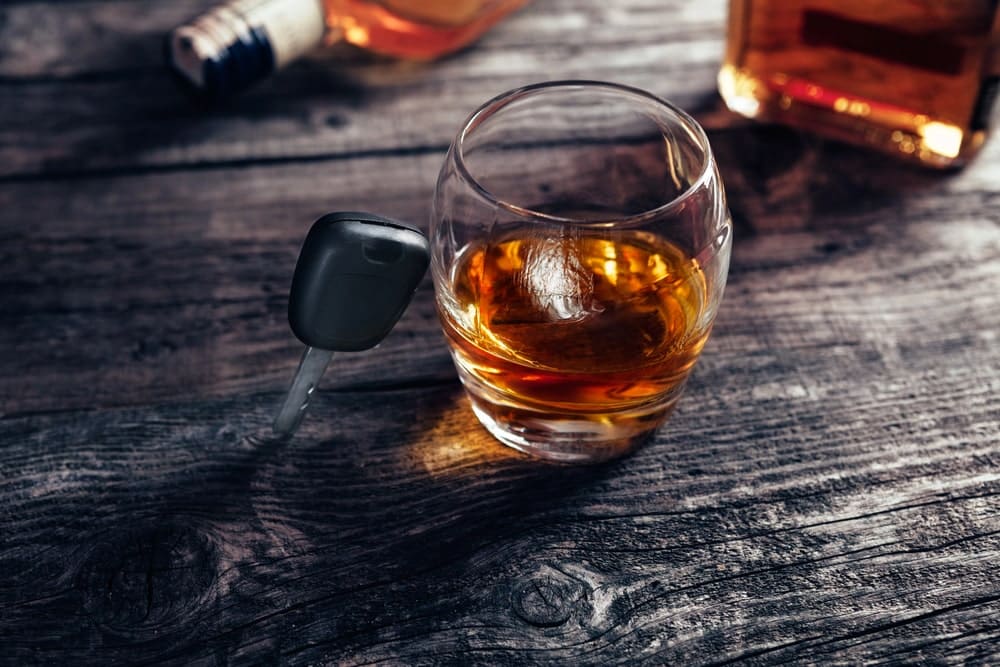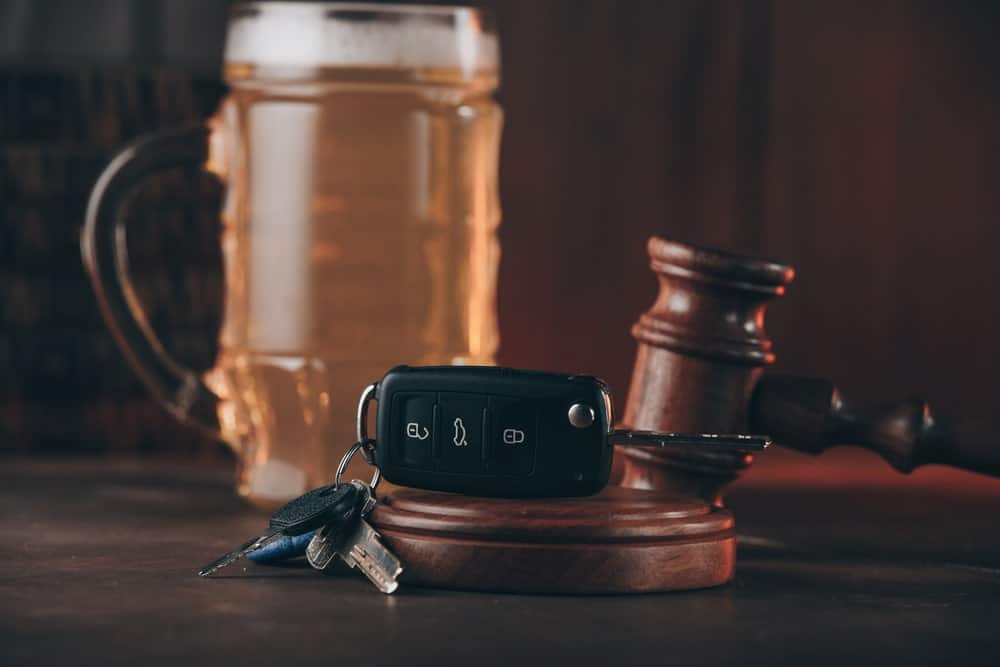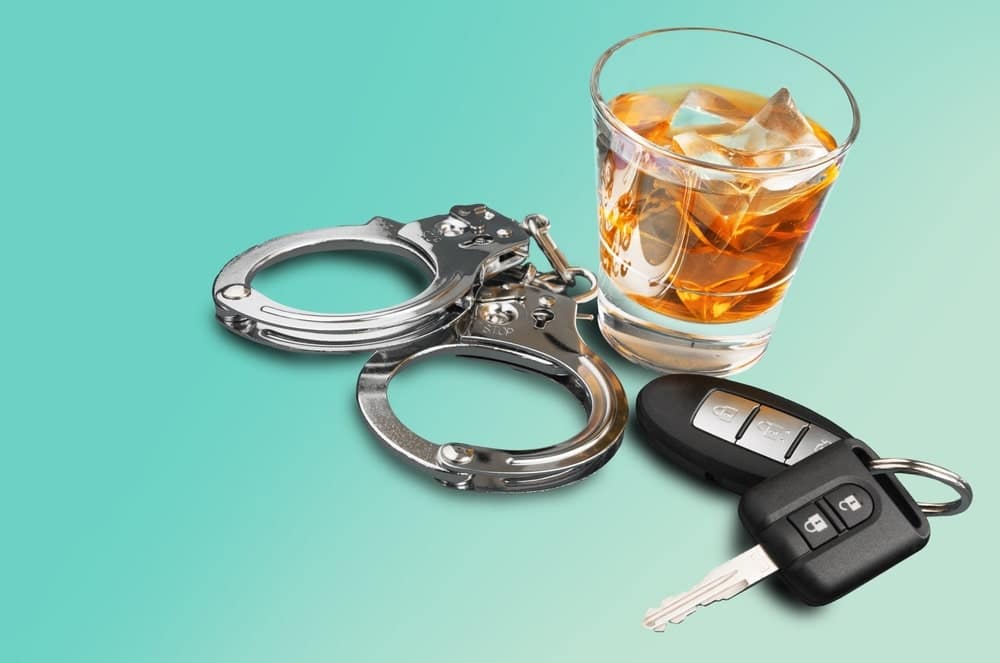A habitual offender designation in Maine is based on your driving history, including past criminal OUI convictions. When you are arrested for an OUI, authorities review the last ten years of your record to determine if you have prior offenses.
If you have no previous convictions or your last conviction was over ten years ago, you will face a first-offense OUI charge, which carries fewer penalties than repeat offenses. However, multiple OUI convictions can lead to habitual offender status, resulting in harsher consequences, including longer license suspensions and potential jail time.
Call 207-571-8146 or contact us online to schedule a consult with one of our highly skilled criminal defense & OUI lawyers, serving Southern Maine, today.
Table of Contents
OUI Habitual Offender in Maine
Maine has a tough Habitual Offender law. A habitual offender is defined as follows:
3 or more major offenses within a five year period, which includes:
-
- OUI conviction
- Operating after Suspension conviction
- Operating without a License
- Driving to Endanger
- Leaving the Scene of an Accident
- OUI manslaughter
- Failure to Report an Accident
- 10 or more traffic offenses within a five year period
Since minimum jail sentences apply to people convicted under Maine’s Operating After Habitual Offender law, now is no time to “go it alone” or to satisfy yourself with an inexperienced or mediocre criminal defense attorney.
If you have been arrested for this offense, you are facing hard deadlines that you must meet in order to protect yourself.
What To expect with an OUI Habitual Offender Charge in Maine
The evidence needed for an OUI arrest is very minimal. In order to be charged with OUI in Maine, you need to have a BAC over the legal limit (.08% for adults over 21 and .01% for minors under 21). The most accurate BAC readings are not available instantly, however, and it may take days or even weeks to get the results of an actual blood test. For this reason, a police officer can make an OUI arrest based purely on his/her suspicions. If you make a driving mistake like speeding and the officer thinks your eyes look red, you smell like alcohol or some other objective signal, you can be arrested.
There is no set amount to how many drinks you can have before you are considered over the limit; it depends on many factors that are different for each person. Some of these factors include:
- Weight – smaller people’s BAC will generally rise faster due to having less body mass for the alcohol to evenly distribute in, resulting in a higher BAC concentration;
- Gender – women tend to reach the legal limit faster than men consuming the same amount of alcohol, which is due in large part to having a generally higher body fat content and less overall muscle mass (alcohol does not settle in body fat or bone mass; only the watery tissues such as muscle, blood, and organs such as the brain);
- Food – the more food you have in your stomach, the slower your BAC rises;
- Time – alcohol is removed from the system at a rate of about 1 ounce per hour.
First OUI penalties in Maine
For a person with no previous OUI convictions in a ten year period, the charge is a Class D offense. Class D is one of the lightest criminal classifications, but this does not mean you will not experience penalties. According to Maine law, a first-time OUI offender will be subjected to punishment including the following:
- A minimum fine of $500. If you refused to take a chemical BAC test, the minimum fine will be $600.
- Court ordered driver’s license suspension of 150 days and an additional 275 days suspension time if you refused to submit to a test. (imposed by the BMV)
You could also face jail time if any of the following situations occurred during your arrest:
- A minimum of 48 hours in jail will be served if you had a BAC of .15% or more;
- A minimum of 48 hours in jail will be served if you were stopped for speeding 30 mph or more over the legal speed limit;
- A minimum of 48 hours in jail will be served if you fled or attempted to flee police;
- A minimum of 48 hours in jail will be served if you had a minor under 21 in the car with you; and/or
- A minimum of 96 hours in jail will be served if you refused to take a chemical BAC test such as a blood, breath or urine test.
These set out minimums, but the judge is free to sentence you to more jail time or steeper fines depending on the circumstances of the case. In addition to these penalties, a judge can also use their discretion to add penalties like community service and probation to your sentence.
Call 207-571-8146 or contact us online to schedule a consult with one of our highly skilled criminal defense & OUI lawyers, serving Southern Maine, today.
Second OUI penalties in Maine
While the penalties of a second OUI offense are significantly harsher, the defense strategies for a second OUI are largely the same as a first offense. Depending on the circumstances of your case, you might use the following defenses:
- The breathalyzer or chemical test was experiencing problems
- There was a problem with the observation and deprivation period (wait period)
- The results of the chemical test can’t be trusted because it was incorrectly administered
- There was no reasonable suspicion for the stop or probable cause for the arrest
- The field sobriety tests were administered incorrectly
- The officer’s description of the arrest fails to prove that you were under the influence of an intoxicant
Compared to a first OUI offense, the penalties of a second offense are substantially higher:
| Crime Classification | Jail Time | Fines | License Suspension | |
| First OUI Offense | Class D misdemeanor | No minimum | Minimum of $500 | At least 150 days |
| Second OUI Offense | Class D misdemeanor | Minimum of 7 days | Minimum of $700 | At least 3 years |
The Maine legislature apparently thought that a second OUI was the one that betrayed a trend that the law should make an effort to prevent. This was probably why they drastically extended the length of the license suspension and added a minimum of a week in jail.
These are also just the baseline for the penalties you can face for a second OUI. Aggravating factors can increase them significantly, like if your OUI arrest included any of the following scenarios:
- There was someone under the age of 21 in your car at the time of the arrest – also known as a child endangerment OUI;
- You caused a crash that hurt someone else;
- You caused a fatal crash, in which case you can be charged with vehicular manslaughter;
- You refused to take a chemical sobriety test, like a breathalyzer or a blood test, when the police requested one;
- The chemical test you took revealed a BAC at or above 0.15%;
- You tried to get away from the police (this is called Eluding);
- You were going at least 30 miles per hour over the stated speed limit.
Anyone of these aggravating factors can increase the fines, jail time, and license suspension that are on the table for a second OUI offense. The statute takes explicit exception to people who refuse to take a breathalyzer or other chemical sobriety test, also known as an implied consent violation. If you already have an OUI on your criminal background, refusing a breath, blood or urine test (chemical test) increases the minimum fine from $700 to $900 and the minimum jail time from 7 to 12 days.
In addition to these penalties, you could also be facing additional charges, depending on the circumstances of your arrest. For example, if police find marijuana or drugs in your car after the traffic stop, you could face a criminal charge as well as the penalties for drug possession.
Third OUI Penalties in Maine
With substantially higher penalties on the table, it is even more important to vigorously defend against an accusation of a third OUI. Many of the same OUI defense strategies are still available, depending on your situation:
- There was no reasonable suspicion for the traffic stop.
- The BAC tests were improperly administered.
- The breathalyzer was not calibrated properly or the test was improperly administered.
- The officer wasn’t certified to perform certain tests such as the breath test.
- The police officer’s testimony that you were too impaired to drive should not be taken seriously.
- The field sobriety tests were flawed.
You can also challenge the use of prior convictions, especially if they were out-of-state offenses under a law that is substantially different from Maine’s OUI statute.
A 3rd OUI is a felony in Maine
When compared to first and second OUI offenses, a third conviction for operating under the influence carries much higher penalties:
| Crime Classification | Jail Time | Fines | License Suspension | |
| First OUI Offense | Class D misdemeanor | No minimum | Minimum of $500 | At least 150 days |
| Second OUI Offense | Class D misdemeanor | At least 7 days | Minimum of $700 | At least 3 years |
| Third OUI Offense | Class C felony | At least 30 days | Minimum of $1,100 | At least 6 years |
It is important to remember that these sanctions are just minimums. Once you have had two prior OUI convictions, judges are probably going to focus on the trend of drinking and driving and will be less likely to be lenient with their sentencing.
Additionally, certain aggravating factors can increase – sometimes quite drastically – the penalties of a third OUI conviction:
- You were speeding at least 30 miles per hour over the limit.
- You had a BAC of 0.15% or higher.
- You tried to elude the police.
- You refused to take a breathalyzer or other chemical BAC test.
- You caused an accident that injured someone.
- You caused a fatal crash.
- You were arrested with someone under the age of 21 in the car, also known as a child endangerment OUI.
Any of these aggravating factors can add to the fines, jail time, and license suspension that are on the table for a third OUI offense.
Maine’s OUI law explicitly increases the penalties for refusing to take a BAC test and violating the state’s implied consent laws. For a third OUI offense, refusing to take a breathalyzer or blood test to gauge your BAC increases the fine from $1,100 to $1,400, and adds 10 days to the minimum jail sentence you could face if you get convicted, which means a 40-day jail sentence.
To make matters worse, traffic stops that end with an OUI arrest can frequently lead to other criminal charges, as well. If police find contraband or drugs in the car, you could face additional charges like drug possession or even trafficking. Each of these additional offenses will carry its own set of penalties that exacerbates your situation.
Even basic, “run of the mill” third offense OUIs, though, are felonies. A conviction puts a felony-level offense on your criminal background. A felony conviction is the equivalent of the “Scarlet Letter” and is nearly impossible to overcome, even after all of the other penalties that came with the conviction have been dealt with.
Call 207-571-8146 or contact us online to schedule a consult with one of our highly skilled criminal defense & OUI lawyers, serving Southern Maine, today.
Work-restricted license with an OUI in Maine
In Maine, a work-restricted license allows limited driving privileges for employment purposes. However, habitual offenders—those with three or more separate motor-vehicle-related convictions—are not eligible for this type of license.
Some offenders may apply for a work-restricted license 18 months after revocation, but strict conditions apply. Any new motor vehicle-related conviction or violation of the license terms can result in immediate revocation, leaving you without the ability to drive legally.
If you’re facing habitual offender status, legal guidance is essential to explore your options for restoring driving privileges.
OUI Lookback Period in Maine
Unlike some other states in the U.S., Maine does not look all the way into your past for a prior OUI conviction to count against you. Instead, it uses a limited “lookback period” of 10 years.
This means prior OUI convictions will not count against you if your prior sentence was imposed more than 10 years before your latest OUI charge.
Prior OUIs can come from anywhere in the U.S., not just Maine. Even if you were accused and convicted for OUI in Idaho, if it happened in the last 10 years, it can be used to enhance the penalties of an OUI charge you are now facing in Maine. For example, if you have a conviction out of Idaho for DUI in 2012, a conviction for OUI in Maine from 2014 and now you’re charged with a new OUI in 2019 in Maine, you’re facing a felony 3rd offense OUI charge.
Contact our OUI Habitual Offender Lawyers
The Maine criminal justice system can feel like a meat grinder to those who are unprepared for it. Rules of evidence and civil procedure are complex and arcane, and the system is predatory to its core. Quite frankly, the system will eat you alive if you are not prepared to deal with it.
Missing a critical deadline or responding ineffectively could greatly harm your case or even result in unnecessary jail time. The earlier you involve an experienced criminal defense attorney in your Maine habitual offender case, the readier you will be to fight back when the time comes.
Call us directly at (207) 571-8146 or contact us directly online to schedule a case consultation and find out how we can help.
Call 207-571-8146 or contact us online to schedule a consult with one of our highly skilled criminal defense & OUI lawyers, serving Southern Maine, today.
Blog Posts

OUI cases in Maine usually start when a law enforcement officer pulls over a vehicle. From that point, many things can happen but if the officer even has a slight[...]

January 11th, 2025, in Skowhegan, Maine, a Maine Department of Transportation plow truck sustained a head-on collision caused by a drunk driver on Route 2, as reported by law enforcement.[...]

The tragic events of a fatal car crash in 2023 that claimed the lives of four young people have finally reached a pivotal legal outcome. Noelle Tavares, a former Maine[...]

In most states, there are many different places that the average person can take a driving course to satisfy court requirements as related to an DUI conviction. However, in the[...]

Defending against OUI offenses in Southern Maine Anyone charged with a 2nd OUI in Maine should expect little leniency from the criminal justice system. This makes it even more important[...]

Defending against OUI Refusals in Southern Maine Did you know that it is a criminal offense to refuse to submit to a chemical test if lawfully requested to do so[...]

Reducing an OUI charge in Maine OUI charges are handled severely in Maine. For many people, a drunk-driving charge is their first time dealing with the criminal justice system and,[...]

Alcohol laws of Maine While you should be aware of the strict OUI laws in Maine, it’s also important to know about other ways you can face a traffic infraction[...]

Defending against OUI offenses in Southern Maine A first OUI in Maine can potentially have long-term consequences, but with the right legal representation, alleged offenders can escape the harshest penalties.[...]

If you blow under .08 in a DUI breath test in Maine, it may be jumping the gun to breathe a huge sigh of relief. You may not be “free[...]


